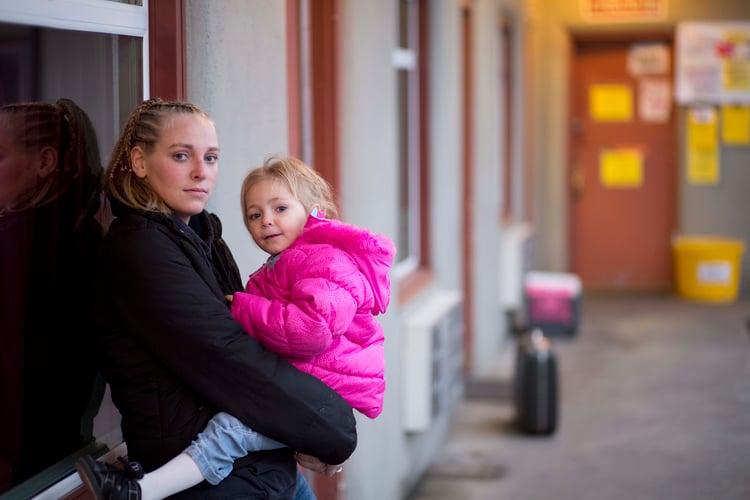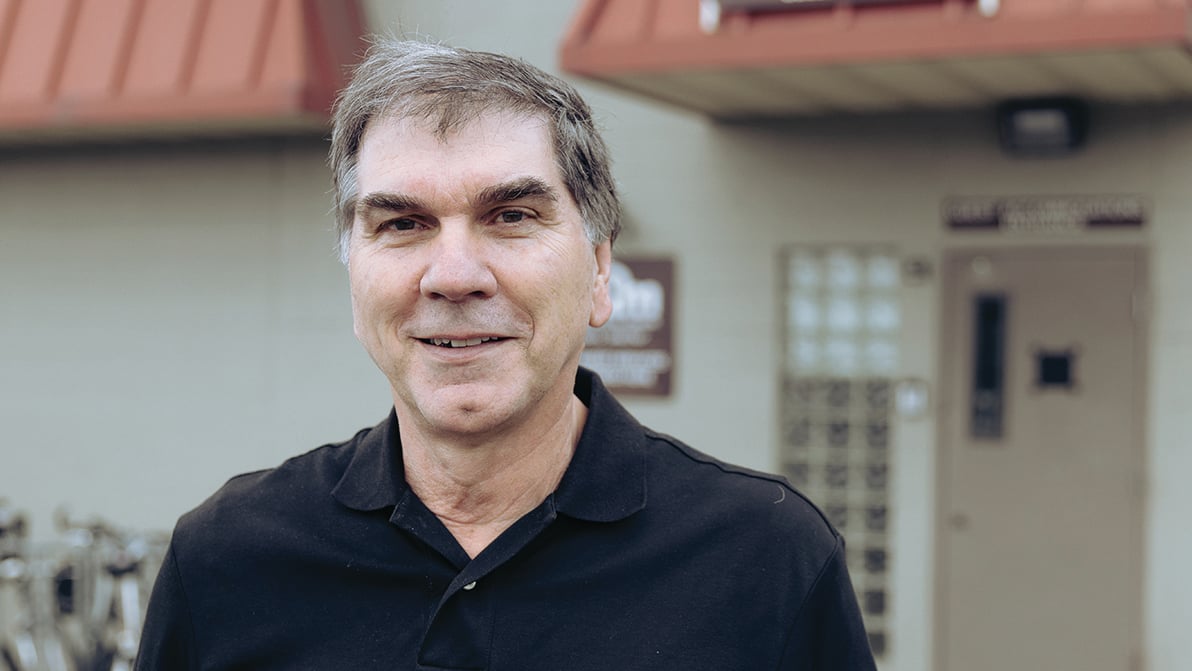2 min read
Gospel-Centered from the Start
“Let us hold unswervingly to the hope we profess, for He Who promised is faithful…Jesus Christ is the same yesterday, today, and forever.” (Hebrews...
A friend on Facebook recently posted a picture of her new wood flooring and her new granite countertops with the hashtag #blessed.
She’s expressing gratitude for God’s goodness and trying to avoid a boasting mentality. She’s giving credit to God for all that she has. I get it. And I don’t really mean to pick on her, but it started me thinking about blessing, about poverty, about Jesus.
Jesus was poor. Jesus was a refugee. Jesus was homeless.
During this season when we celebrate his birth, it seems reasonable to ask what we mean by the word “blessed.” After all, God’s desire to bless humanity is a central theme of Scripture and one of the main reasons for Christ’s coming in the first place.
Confession: My tendency is kind of opposite of my Facebook friend's or perhaps just the other side of the same coin. I tend to doubt God's blessing based on the failure of things to go my way. When my husband was unemployed for several months this year, when our savings dwindled, when our dream for our own restaurant didn't come true, when I have conflict in my relationships, when life is hard and I don't want to get out of bed...I doubt whether I am in fact blessed.

So, what does it mean to be “blessed”? Is it synonymous with the American dream? Are we blessed when we have beautifully wrapped presents under the tree, a ham in the oven, a car in the driveway? What about the people who don’t? Are they not blessed? Are they cursed? Are we blessed when we are surrounded by friends and family? What about those who are not? The widow? The child in foster care? The mom who just lost her son? Are they cursed?
What about the people filling UGM’s shelters? Are they blessed or are they cursed?
Even before Jesus was born, his mother tied his coming to a reversal of fortunes: “…he has scattered the proud in the thoughts of their hearts; he has brought down the mighty from their thrones and exalted those of humble estate; he has filled the hungry with good things, and the rich he has sent away empty” (Luke 1:51-53).
Based on Mary’s song alone, it seems reasonable to ask if “blessed” equates to material wealth.
Mary, nine months pregnant, traveled by donkey to Bethlehem, where she gave birth in a type of barn, surrounded by animals. Eventually, Mary would see her beloved Son murdered, crucified, humiliated and mocked. Was Mary blessed?

In her song recorded in Luke, sometimes called “The Magnificat,” Mary says that she was blessed. “My soul magnifies the Lord, and my spirit rejoices in God my Savior, for he has looked on the humble estate of his servant. For behold, from now on all generations will call me blessed; for he who is mighty has done great things for me, and holy is his name.”
Seeing how God is God – all-knowing, all-powerful – he certainly could have done things differently. Jesus could have been, like Moses, raised in a palace, surrounded by wealth and royalty. He didn’t have to be born to a poor teenager with no social standing. God orchestrated a census that brought Mary and Joseph to Bethlehem, the place where the Old Testament said the Messiah was to be born. He led wise men from the east by a star. He sent angels to appear to shepherds. He grew a baby in the womb of a virgin. He certainly could have made room in the inn.
Mary is called “blessed.” Jesus is God’s “beloved Son in whom he is well pleased.” And, yet, God deems it appropriate for his Son to be laid in a manger, for his earthly parents to be part of the working poor – unable to afford the standard ceremonial lamb at his circumcision.
Backing up even further, before Jesus’ birth, before the Magnificat, before the angel appeared to Mary, poverty was part of God’s eternal plan for Jesus.
“For you know the grace of our Lord Jesus Christ, that though he was rich, yet for your sake he became poor, so that you through his poverty might become rich.” (2 Corinthians 8:9)
Jesus left heaven and assumed human nature. He willingly subjected himself to time and space, to a human body with all its limitations. The Creator assumed the form of one of his creatures. Compared to the riches of heaven, Jesus chose profound poverty.
“Foxes have holes and birds of the air have nests, but the Son of Man has no place to lay his head.” (Luke 9:57-58)
Jesus was a refugee in multiple senses of the word. His home was heaven. Even in terms of an earthly home, he and his parents were forced to flee to Egypt in order to escape Herod’s murderous rage.
Throughout his ministry, Jesus relied upon the kindness of strangers – for meals, for lodging, for transportation.
Jesus’ life looks very different from the American dream. Why should I expect that mine would mirror it?
“Blessed are the poor in spirit. Blessed are those who mourn. Blessed are the meek. Blessed are those who hunger and thirst for righteousness...” (Matthew 5:1-12)

Blessed are those who walk with God. Blessed are those who have been forgiven. Blessed are those who have entered into a relationship with Christ Jesus.
This may not look like wood floors and granite countertops. Or money in the bank. Or dreams come true. It may not look like presents under the tree or health or a house full of family and friends. It may not look anything like what we want it to.
“This is often the way God loves us: with gifts we thought we didn’t need, which transform us into people we don’t necessarily want to be” (William Willimon, “The God We Hardly Knew”). Because, ultimately, he loves us by drawing us to himself. That’s what it means to be #blessed.
So, being homeless is not necessarily at odds with being blessed, and being surrounded by material wealth and creature comforts is not necessarily evidence that we are in God's favor.
The true blessing is God himself – God with us – and that can happen in a homeless shelter, or by a comfy fire, or on the battlefield. This Christmas, don't settle for anything less.
For more food for thought on God, love and poverty, check out this free e-book:

2 min read
“Let us hold unswervingly to the hope we profess, for He Who promised is faithful…Jesus Christ is the same yesterday, today, and forever.” (Hebrews...

9 min read
To celebrate 75 years of serving the Inland Northwest, we are spending the year remembering our history and the faithfulness that built us and...

2 min read
In 2026, Union Gospel Mission Inland Northwest is approaching our 75th Anniversary! This is a milestone that invites gratitude and reflection, and...

The other day I received this text message from Scott, one of our program graduates: “I forgot to mention that yesterday was my 6 years...

In Clarkston, WA, Pastor Jeff Pernsteiner leads Confluence Community Church with a passion rooted in both deep faith and deep compassion. “We started...

Sometimes I think of this ministry and all the resources you have provided like the great feast Jesus describes in the gospel of Luke. Because of...